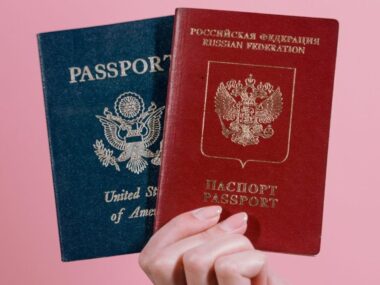What is Canadian Spouse Sponsorship?
Canadian Spouse Sponsorship is a government program under Family Class Immigration that allows Canadian citizens and permanent residents to sponsor their spouse, common-law partner, or conjugal partner for permanent residency (PR) in Canada. This program is designed to keep families together, allowing couples to live and build a future in Canada.
The sponsored spouse or partner will receive permanent resident status, giving them the right to live, work, and study anywhere in Canada. However, the sponsor is responsible for financially supporting the sponsored person for a certain period to ensure they do not rely on social assistance.
Types of Spousal Sponsorship Applications
There are two main types of spousal sponsorship applications:
Inland Spousal Sponsorship
- For spouses or partners who are already living in Canada on a temporary visa (visitor, student, or worker).
- The sponsored person can apply for an open work permit while waiting for the application to be processed.
- The applicant must remain in Canada until a decision is made.
Outland Spousal Sponsorship
- For spouses or partners living outside Canada during the application process.
- The application is processed through a Canadian visa office in the applicant’s home country.
- The sponsored person can still visit Canada while the application is in process, but they must remain outside Canada until a decision is made.
Who Can Sponsor Their Spouse to Canada?
Before applying for Canadian spouse sponsorship, you must ensure that you meet the eligibility requirements as a sponsor. The Government of Canada has specific criteria to determine who can act as a sponsor in a spousal sponsorship application.
Eligibility Criteria for the Sponsor
To sponsor your spouse, common-law partner, or conjugal partner, you must meet the following requirements:
Be at least 18 years old – Only adults can legally sponsor their spouse or partner.
Be a Canadian citizen or permanent resident – You must either:
- Be a Canadian citizen, even if you are currently living outside Canada, as long as you plan to return to Canada once your spouse’s application is approved.
- Be a permanent resident living in Canada at the time of applying (permanent residents cannot sponsor from outside Canada).
Prove your intent to live in Canada – If you are a Canadian citizen living abroad, you must show proof that you will move to Canada once your spouse is granted permanent residence.
Not be receiving social assistance – You must not be receiving government financial assistance, except for reasons of disability.
Be financially responsible for your spouse – As a sponsor, you must sign an undertaking agreement to financially support your spouse for three years after they receive permanent residence. This means:
- You will provide basic necessities like food, clothing, and shelter.
- Your spouse cannot apply for social assistance during this period.
Have no sponsorship bans or ineligibility due to past cases – You cannot sponsor your spouse if you:
- Were yourself sponsored as a spouse within the last five years.
- Did not fulfill financial support obligations in a past sponsorship.
Who Cannot Sponsor Their Spouse?
You cannot sponsor your spouse if you fall under any of the following categories:
You were sponsored as a spouse within the last 5 years – If you were previously sponsored by a spouse to become a permanent resident, you must wait at least five years before sponsoring someone else.
You are still financially responsible for a previous spouse – If you sponsored a previous spouse or partner and are still within the three-year financial support period, you must wait until that period ends before sponsoring a new spouse.
You are in prison or have a serious criminal record – If you have been convicted of certain violent or sexual crimes, you may be ineligible to sponsor.
You are in financial trouble – You cannot sponsor if:
- You did not repay a previous immigration loan or social assistance debt.
- You are in bankruptcy and have not been discharged.
You failed to pay child or spousal support – If you were ordered by a court to pay child or spousal support and failed to do so, you may be ineligible.
You provided false information on a past immigration application – If you were found guilty of misrepresentation in any past immigration application, you may be banned from sponsoring for a certain period.
Eligibility Criteria for the Sponsored Person
The sponsored person (spouse, common-law partner, or conjugal partner) must also meet specific eligibility requirements to be approved for permanent residence under Canada’s Spouse Sponsorship Program.
Below are the key criteria that determine whether your spouse or partner qualifies for sponsorship.
Age Requirement
The sponsored person must be at least 18 years old at the time of application.
Relationship Status
The sponsored person must be legally recognized as one of the following:
Spouse
- The applicant must be legally married to the sponsor.
- The marriage must be valid under both Canadian law and the law of the country where it took place.
- If the marriage took place outside Canada, it must be legally recognized in that country and in Canada.
Common-law Partner
- The applicant and the sponsor must have lived together for at least 12 consecutive months in a marriage-like relationship.
- Proof of cohabitation is required (e.g., shared bills, joint lease, joint bank accounts, photos).
Conjugal Partner
- The applicant must be in a committed relationship with the sponsor for at least one year but unable to live together due to exceptional circumstances (e.g., immigration barriers, legal restrictions, war).
- Proof of the relationship must be provided (e.g., communication records, travel history, affidavits).
Admissibility to Canada
The sponsored person must not be inadmissible to Canada due to any of the following reasons:
Criminal Background
- The sponsored person must not have a criminal record or have committed serious crimes.
- A police clearance certificate is required from any country where they have lived for six months or more since the age of 18.
Medical Inadmissibility
- The sponsored person must undergo a medical examination with an IRCC-approved physician to ensure they do not have any serious health conditions that could burden Canada’s healthcare system.
No Misrepresentation
- The applicant must not provide false information or fraudulent documents.
- If caught misrepresenting facts, they could be banned from applying for five years.
Intention to Live in Canada
- The sponsored spouse must intend to live permanently in Canada once the application is approved.
- If the couple is applying through Outland Sponsorship, the spouse can stay in their home country while waiting for approval but must move to Canada upon approval.
No Previous Sponsorship Ban
The sponsored person cannot have been sponsored previously as a spouse in the last five years. If they were granted permanent residence through spousal sponsorship before, they must wait five years before applying again under a new relationship.
No Immigration Violations
The sponsored person must not have overstayed a visa or have been previously removed or deported from Canada due to immigration violations. If they have, they may need to apply for a Temporary Resident Permit (TRP) before they can be sponsored.
Proof of Genuine Relationship
Immigration officers carefully examine spousal sponsorship applications to ensure the relationship is genuine and not for immigration purposes only. The couple must provide strong proof of their relationship, such as:
Marriage Certificate (if married).
Photos together from different events and time periods.
Chat logs, call records, and emails.
Travel history showing visits to each other.
Joint financial documents (bank accounts, property, leases).
Affidavits from family and friends confirming the authenticity of the relationship.
If IRCC suspects a marriage of convenience, they may request an interview or additional proof.







